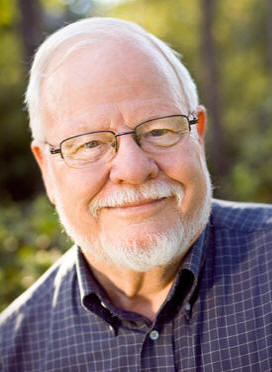Fount Shults has experience in helping people who may or may not realize that they’ve been affected by a spiritual condition in which they feel orphaned. He has helped many to be released from this through prayer ministry.
He graciously has agreed to let us share one of his articles from his blog, It’s one of those articles to ponder and pray about. May God reveal to us areas of our lives in which we are operating from an orphan spirit.
Orphans and Authorities
“I will not leave you orphans; I will come to you.” John 14:18
In our culture few have experienced intimacy with an earthly father. That makes it difficult to approach God as Father because our “internalized father” (the image of fatherhood from our Dad) was never open to intimacy; he was focused on the task at hand and getting the job done right. Or perhaps he was simply not there when we needed him, or was physically away from the home. The majority of children are raised in a home without the presence of a father. This is the source of orphan thinking.
We see God through that lens. Apparently Father God intended for parents to present an image of God to their children by the way they function as parents. At a certain age, we transfer our internalized image of Dad over to Father God. We think God is like our daddy. The good news of the Gospel is that God is not like your daddy. Even if you had a good father, Father God is ever so much more open to intimacy and more available. He doesn’t have to work for a living.
As young children we worked hard to win the favor of our dad (at least when we were very young, before we were wounded). We often think that intimacy with Father comes by our effort to be in his presence. But truthfully, we are always in his presence. He will never leave us. Intimacy can never come by human effort. It’s more passive from the human side. Papa God has already done the work. We simply need to let him have his way, let him hold you in his arms.
Because of this “father wound” we tend to resist authority at some level. Teenage rebellion is an effort to break the father’s hold. Sometimes the Teen simply shuts down, goes to his room and refuses to relate. He’s resisting because it hurts too much to face rejection again. In adult life the orphan heart will have trouble with bosses, husbands, pastors and even the civil authorities. All this is often an outworking of the father wound. We tend to see the “internalized father” in those in authority over us.
“No one tells me what to do,” is the outcry of an orphan who has been wounded by a demanding father. “I can never measure up no matter how hard I try,” he says, “therefore why should I try? I will be criticized and rejected anyway, so I will just give him something to reject. I’ll reject him before he rejects me. That gives me control over the situation.”
Why do fathers in our culture wound their children? Because they are orphans in their thinking! They are trying to solve their own father issues by making their children behave in a way that makes them feel good about themselves. They want their children to make them look good in the eyes of their peers. In other words an orphan only thinks of himself and his needs. He is not genuinely interested in the feelings of his children.
In this way tendencies to behave inappropriately are passed down from generation to generation. We call these tendencies generational iniquities. The tendencies are not passed on through the genes but through trying to make up for the love deficit carried over from childhood. These tendencies, or iniquities, are impossible to overcome through self-effort. Only Father God can heal a broken heart. Without him we can do nothing. But we continue to try because we’re still trying to earn a father’s favor.
Looking Forward,
Fount Shults
Founder and President
On Word Ministries
